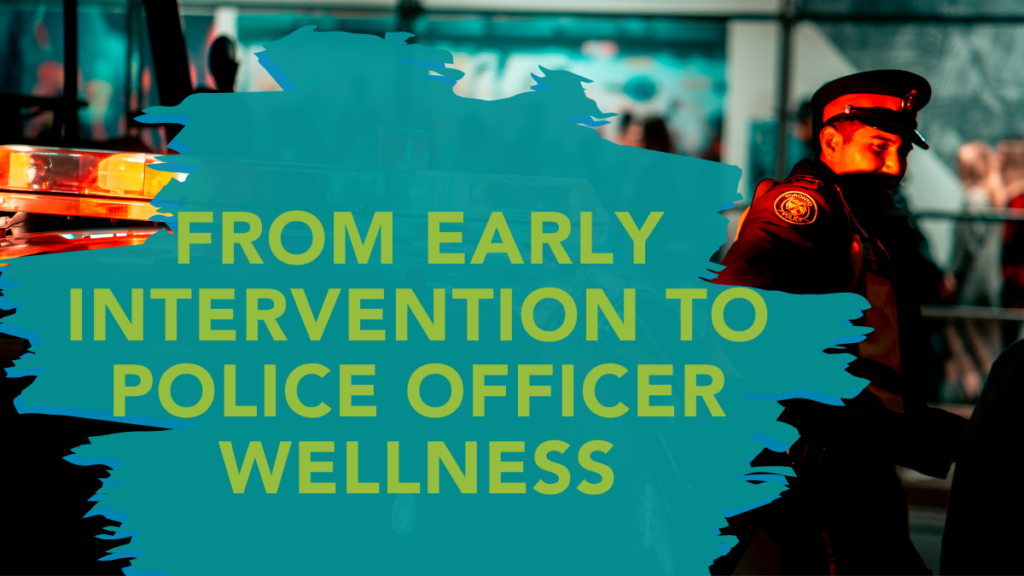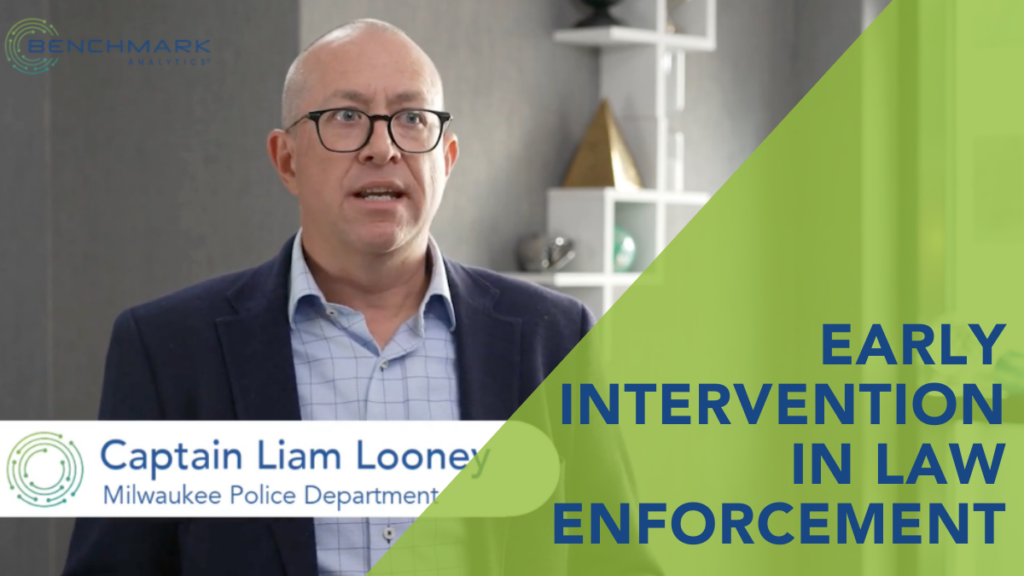Officer Wellness in Practice
Posted
September 16, 2021
Share:
In our previous article, we explored how researchers studying officer wellness are responding to a more urgent need to understand the psychological and physiological factors that impact an officer’s health and job performance. As research expands and the body of knowledge concerning officer wellness evolves, this newly gathered data is being put into practice. Departmental leaders are basing their decisions on this research when crafting policies and creating programs designed to support and enhance officer wellness.
The Law Enforcement Mental Health and Wellness Act of 2017 was passed to give policymakers and police leaders more information to make these decisions. A significant component of the act was the mandate that the U.S. Department of Justice (DOJ) make recommendations to Congress for ways to boost officer wellness. This multifaceted mandate focused on providing recommendations in three areas to improve officer wellness: how to best support agencies, their officers, and mental health providers working with law enforcement agencies.
 To understand the broader picture of best practices in officer wellness, the DOJ produced case studies of several departments throughout the country. The resulting report, Law Enforcement Mental Health and Wellness Programs: Eleven Case Studies, utilized field interviews and site visits to document programs and support services currently in use. It emphasized a “continuum of mental health and wellness strategies, programs, and methodologies” that begin with the recruit and last through retirement. The strategies that the researchers investigated suggested significant efficacy in the departments that implemented them and have been held up as positive examples meriting further research.
To understand the broader picture of best practices in officer wellness, the DOJ produced case studies of several departments throughout the country. The resulting report, Law Enforcement Mental Health and Wellness Programs: Eleven Case Studies, utilized field interviews and site visits to document programs and support services currently in use. It emphasized a “continuum of mental health and wellness strategies, programs, and methodologies” that begin with the recruit and last through retirement. The strategies that the researchers investigated suggested significant efficacy in the departments that implemented them and have been held up as positive examples meriting further research.
The report looked at both common elements of these departments’ approaches to wellness and unique aspects of their efforts. Below are some notable examples from the case studies.
Indianapolis, IN
Leaders at the Indianapolis Metropolitan Police Department created what is now known as the Office of Professional Development and Wellness (OPDW) in 2010. The program emphasizes intensive peer-mentoring — provided by more than 100 experienced officers trained in peer support — that begins before an officer is sworn and lasts up to two years into their service. OPDW programs are specifically designed to help officers adapt to both the physical and mental demands of the job as well as provide ongoing support, connecting officers with mental health and counseling services. Leaders in the department credit the program with helping to change the agency’s culture by making it acceptable to talk about one’s personal and professional life and giving the mentor officers a sense of ownership of the department and in shaping its culture.
Bend, OR
The Bend Police Department began focusing resources on officer health and wellness in the early 2000s. The first major initiative was altering the shift schedule with sufficient overlap in shifts to give officers one hour a week of on-duty physical fitness programs. This early wellness effort eventually expanded into more comprehensive physical wellness programs for officers that, over time, correlated with a 40% decrease in on-the-job injuries. The department has employed an on-site psychologist since 2015 who is “embedded” with officers and engages in ride-alongs to build officer rapport and trust in an effort to “change the culture” around mental health in the department.
Dallas, TX
After a 2016 mass-casualty event affecting 14 officers, the Dallas Police Department greatly expanded its mental health services. It created the DPD Employee Support Program (ESP), which uses officer self-referrals and leaders’ referrals based on early intervention tactics. Referrals are confidential, regardless of source, and do not appear on an officer’s record with the goal of reducing the stigma of seeking support. Three staff psychologists provide services to support the research-based wellness needs of police officers and departments. These include pre-employment screening, family and marriage counseling, debriefing after critical incidents, and fostering peer-support networks. In 2018 DPD partnered with the Brain Health Brain Performance Institute at the University of Texas in Dallas to create a data-driven 12-hour mindfulness course to reduce stress, promote cognitive resilience, and improve focus.
Milwaukee, WI
In 2014 the Milwaukee Police Department began steps towards a substantial shift in the way they approached early intervention. Conducting focus groups with officers and drawing on research from the International Association of Chiefs of Police (IACP), they moved their early intervention program out of Internal Affairs to its Training Division and changed its focus to officer wellness. This was complemented by hiring a full-time psychologist to assist officers in general referrals and work-related trauma cases. Along with the shift in early intervention strategy and a staff psychologist, the department’s non-denominational chaplains are a key element of a three-pronged approach to officer wellness. The lead chaplain is a retired MPD officer, sits on the POST board, and has a stellar reputation among the officers. The chaplains are covered by laws similar to attorney-client privilege, therefore providing a highly trusted source of peer and trauma support that is, in many ways, unique to the MPD.
Tucson, AZ
The Tucson Police Department was one of the first departments in the country to have a unit devoted to officer wellness in mental health when it created the Behavioral Sciences Unit (BSU) in the early 1980s. It presently consists of a psychologist and two sergeants acting as peer support supervisors. Owing to the unit’s importance in the department, its funding has been protected even during major budget cutbacks. The BSU provides a very comprehensive line-up of services to officers that are proactive, focusing on resilience and coping strategies to mitigate stress. The BSU hosts “Family Day” as part of a recruit’s training, taking this focus a step forward by recognizing the demonstrated importance that family support plays. In these sessions, BSU staff members help families understand the potential effects of a career in law enforcement and, most importantly, the confidential support services available to them.
Officer Wellness and Early Intervention
All of these departments are united in emphasizing a proactive approach to monitoring and improving officer wellness. Early intervention, especially in the case of trauma and work-related stress, shows up in many examples as a critical strategy in this approach. Benchmark Analytics’ First Sign® stands alone in its capacity to comprehensively analyze officer performance data for off-track behavior, which can be an important indicator of mental or physical health challenges, family issues, or workplace stress.
These distinct examples show that by following the research, encouraging top-down buy-in, and a willingness to try new methods, departmental leaders have the potential to make a real impact on their officers’ wellness.
Our next article will focus on some of the more innovative ways departments are promoting officer wellness.
Related Posts
Ready to Experience the Benchmark Difference?
Benchmark Analytics and its powerful suite of solutions can help you turn your agency’s challenges into opportunities. Get in touch with our expert team today.



